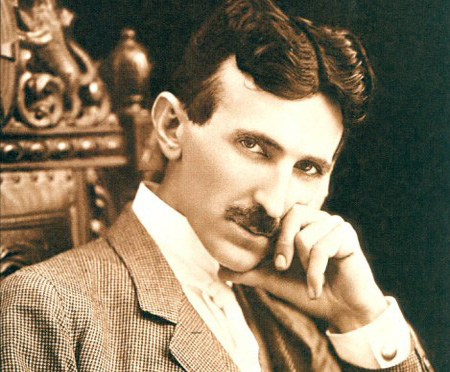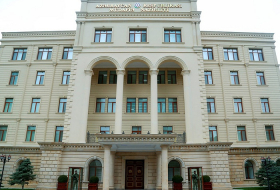The secret man -VIDEO

Nikola Tesla was born in Smiljan, a small Austrian town (today in Croatia) on July 10, 1856. His father was Miliutin, an orthodox priest, and his mother Djuka Mandic, a woman with a rare inventive talent. As Tesla said, from his father he inherited his theoretical and philosophical nature and from his mother his practical thinking and strong memory.
During his school age, he was distinguished for his mental abilities; he could solve problems so fast that he was often accused of cheating. When he was 19, he entered the University of Graaz to study electrical engineering, though the family`s intentions was for Nikola to follow an ecclesiastic or military career.
As a university student he usually disagreed with his professors and became often the object of sneer, when he rejected the electric machine techniques he was taught at the time. The only existing system was the direct current and electric machines were contemned to a rotation evolving from a steady polarity voltage by means of an elaborate commutator system, still used today in dc machines. Tesla was by that time certain that this method was erroneous and that there should be another natural means of producing mechanical rotations from electricity, but he could not support his disagreement. He just had intuitive shines, dictating that electric machines were artificial and unnatural as they were. However, the images he saw in his mind could not become clearer yet.
In 1879 he graduated from the University of Graaz and worked for several companies improving various devices. In that time he finally managed to conceive the scheme of a rotating, or alternating current and of an electric machine producing such a current. He left for Paris and soon, in 1884, he set off to America. He carried some reference letters describing him as a brilliant engineer, equal only to Edison, as well as the schematics of his novel machine.
When in America he visited Edison and was employed in his laboratories. He was assigned the improvement of direct current electric machines, and it was said that in some cases he exceeded Edison`s inventing abilities. In a short time, however, he disagreed with Edison when the latter persistently rejected Tesla`s discovery, the alternating system, and when Edison refused to reward Tesla with a large amount for an improvement he achieved. Edison said he promised the amount as a joke, but either this was an excuse or Tesla had taken Edison`s words too literally, this was the moment for him to leave the company.
After Edison, Tesla worked in various jobs, until he managed to start his own laboratory in New York. He met George Westinghouse, an able businessman of the electric industry, who trusted and supported Tesla. Westinghouse undertook public relations and protected Tesla`s system against the dirty attacks of the Edison company in the so called "war of currents". Finally, Tesla`s alternating system won the tender for constructing the first hydroelectric plant in USA, at Niagara Falls, giving Tesla a great fame. He started earning a lot of money and living an expensive life. In social events only few people dared to come close to him. He is described as a maniac of cleanliness. He always used to wear white gloves and rarely offered his hand for a handshake. No relation with any woman (except his mother and his sister) is mentioned in his life, although there was a peculiar relation with Anne, the daughter of the very strong businessman Morgan. His friends were very few and between them Mark Twain is mentioned as a person Tesla deeply appreciated.
He worked for 20 hours a day! Adorer of formality, he wore formal clothes when he was to start an important experiment. In his office he kept the shutters closed, except during thunderstorms when he liked to enjoy the admiring flashes and thunders, like a child.
He used to invite famous personalities to his lectures and to impress the audience with phantasmagoric electric experiments: colorful flames lighting the room, flashes and high voltage currents passing through his body without danger, and other impressive demonstrations. He had a principle never to repeat for a second time an experiment in public.
An important time in Tesla`s life was when he met the powerful JP Morgan, a major economic factor in USA. He eventually financed Tesla but he never understood him, as Westinghouse did. Tesla quickly asked to leave New York for Colorado Springs, where he built his laboratory in a place chosen for its climatic conditions. In an area surrounded by a tall fence and prohibited by signs warning for "great danger", there were tall towers, strange antennas and other similar electric constructions.
He begun working on his greatest dream: transmitting electric energy without wires to the whole planet, and it was there that he realized most of his inventions. He achieved the first wireless transmission, but this was not his primary target. His goal was to transmit energy, not just messages. And when Guglielmo Marconi announced the invention of radio, this was only a replication of Tesla`s patents.
Finally, Morgan withdrew his financial support and Tesla returned to New York where he tried to build the tallest antenna, the Wardenclyffe tower, to send energy throughout the planet. In vain, his project was left incomplete due to financial inadequacies.
When in 1912 a public discussion began for who was to receive the Nobel prize, Nikola Tesla appeared as one of the possible winners, but he refused the chance saying that it came too late. However, he was also at least in part responsible for neglecting his work, reaching even today. He never liked being compared to other common scientists. He was considering himself not just an inventor, but a Discoverer who uncovered Nature`s secrets. He explored all new and powerful forces, able to change the life on Earth, as he claimed. He refused to comment or explain his work. He didn`t even publish the results of his research, not even keeping notes on his experiments. Even if some work lasted for years, he had all the details kept in his mind.
He used to have a walk every day in the park to feed the pigeons. If for any reason, he could not carry out this duty, he would pay a child to feed the pigeons in his place. There is a strange relation mentioned with a white pigeon which every day visited Tesla through his open window. Tesla said that his life had a meaning as long as this pigeon existed, and indeed when the pigeon died Tesla`s work ended.
Nikola Tesla died on January 7, 1943 in a New York hotel room, alone, rather poor and surely forgotten. He kept his notes locked, and rumors exist that secret agents took these notes right after his death, at least to investigate his strange claims towards the end of his life (death rays that could make whole armies vanish in seconds, communication with other planets etc.)















































